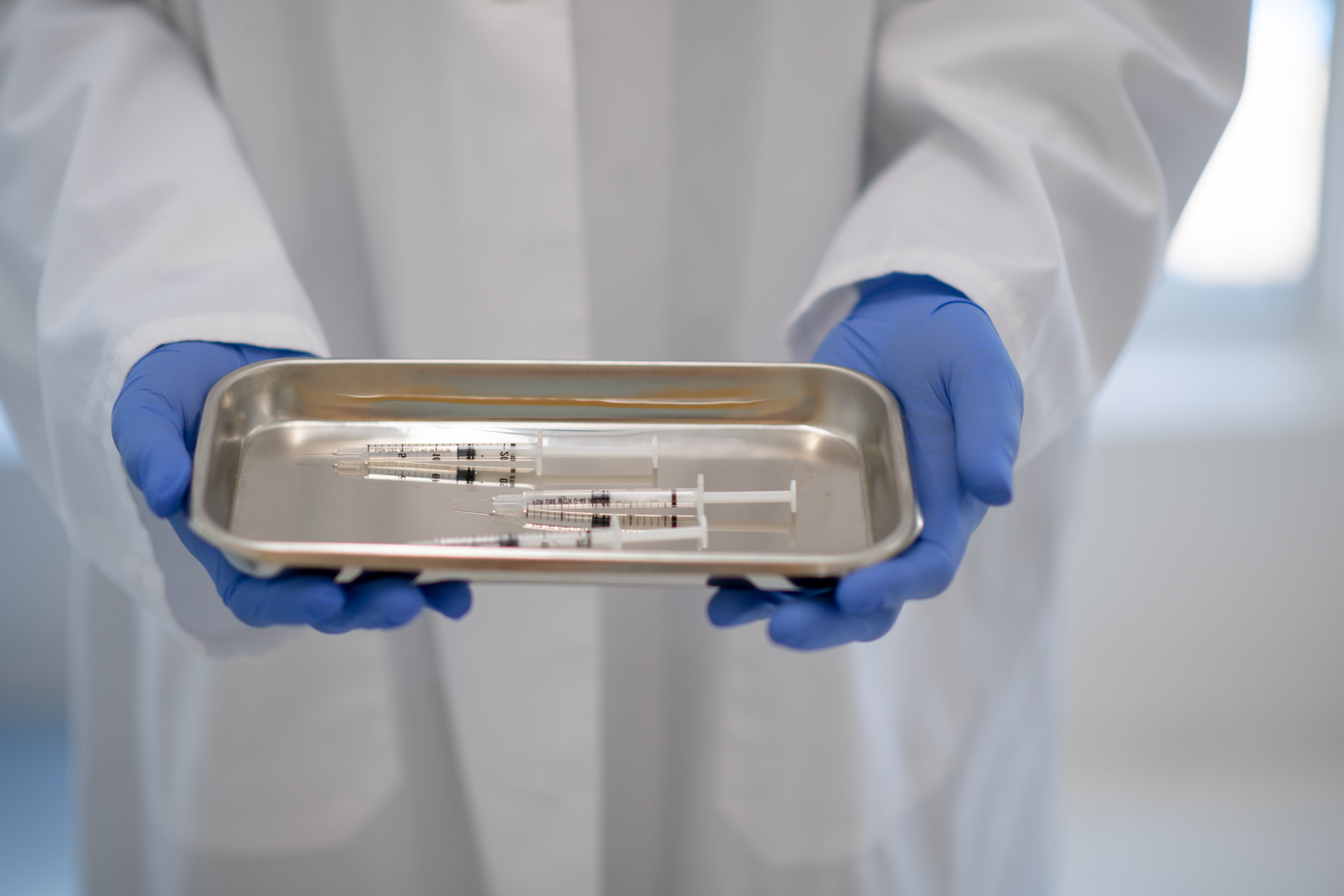
Worried about getting your flu shot? We’re here to bust 5 myths about your annual top-up.
We know, we know, flu shots are no fun. (Trust me…I resisted for a long time, even when I worked in a hospital.) But the flu is scary: According to the CDC, the flu hospitalizes 200,000 people every year and kills 36,000, and flu complications such as pneumonia can be dangerous too—and the flu can even worsen chronic health conditions like diabetes or asthma.
And the 2019 flu season is shaping up to be a tough one. Australia’s flu season—which is often used to predict the severity of the flu season in the U.S.—started early and was fairly severe this year, so the CDC is recommending that you get vaccinated now.
There’s a lot of incorrect information about flu shots out there, so we’re here to nip that in the bud. Here we go!
1. They don’t work.
Wrong! It’s true, the effectiveness of flu vaccines can vary—but they do reduce your chance of getting the flu by between 40 and 60%, according to the CDC. If you’re thinking “gosh, that doesn’t sound that effective,” how about some real numbers: In 2016-2017, the flu shot prevented an estimated 5.3 million cases of the flu, 2.6 million flu-related medical visits, and 85,000 flu-related hospitalizations.
2. They cause the flu.
Also nope. You might experience some flu-like symptoms if you have a reaction to the vaccine, and it’s possible to develop the flu in the two weeks or so it takes the vaccine to go into effect. But the flu shot is either made with an inactivated virus or a single gene from the virus to help trigger your body’s immune system—which is kind of the opposite of what the flu does. So, no, a flu shot doesn’t cause the flu.
3. They cause autism and/or other conditions.
Aaaaaand no. We’re not going to get into the nitty-gritty details of the vaccine debate here, but here’s the upshot (pun intended): Some folks seem to be worried about thimerosal, an anti-contaminant in many vaccines that’s also used in multi-dose vials of flu vaccine. (It’s not used in single-dose vials or prefilled syringes.) But let’s just quote the CDC here, because this is important: “Since 2003, there have been nine CDC-funded or conducted studies that have found no link between thimerosal-containing vaccines and ASD, as well as no link between the measles, mumps, and rubella (MMR) vaccine and ASD in children.”
Believe the science, people!
4. No need for the shot—you can prevent the flu by washing your hands.
I mean, it can help (says the Mayo Clinic)—as can cleaning communal surfaces, getting enough sleep, and staying away from those who have it —but, again, and we can’t say this enough, getting your flu shot can help protect you.
5. Healthy people don’t need the flu shot.
Babies! You like ‘em, right? So do we. That’s why you might want to protect them and other members of at-risk populations from the flu—that category also includes little kids, pregnant women, and those who are 65 and older. Even if you don’t think you’re sick, you can pass the virus on a day before symptoms develop and up to five to seven days after becoming sick.
Update 11/8: In a powerful testimonial to the importance of the vaccine, Dr. Jennifer Gunter shared her very personal and harrowing experience with the flu on Twitter:
I’ve had my flu shot. My son Oliver had influenza pneumonia when he was 2 years old and it almost killed him. Please protect yourself and extend your privilege to protect those who are most vulnerable. https://t.co/l2JuSyUoNn
— Jennifer Gunter (@DrJenGunter) November 8, 2019
And if you’re thinking “But what about me?”, you should know that if you do develop the flu, you have a higher chance of having a heart attack or stroke while you recover. So, better not to get the flu in the first place!
Should anyone not get the flu shot?
Yes! Children less than 6 months of age, and potentially, those who’s severely allergic to any ingredient in the vaccine, including eggs—although reactions to the flu shot even in those who have egg allergies are really rare, and you might just need to have it administered under a doctor’s supervision. If you do have an egg allergy, here’s what you need to know.
And that’s it! So: Get your flu shot. And be safe out there!




